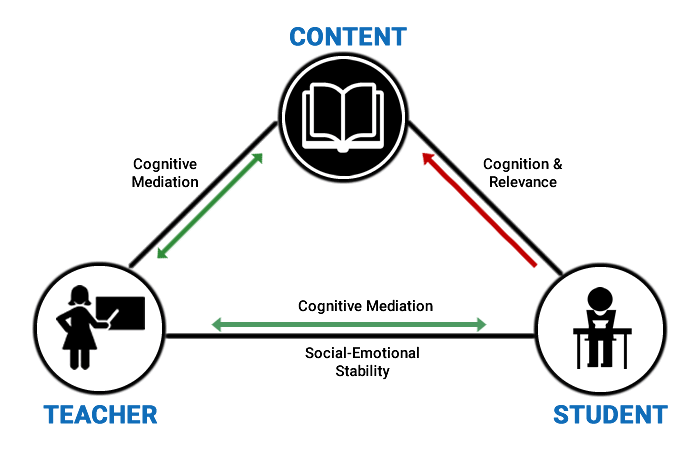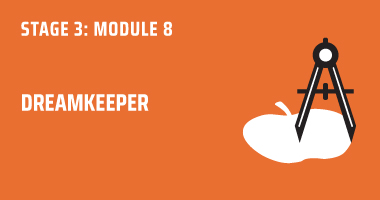Module 8: Dreamkeeper


MODULES IN THIS STAGE
RESOURCES THIS MODULE
PRAXIS AND SELF-REFLECTION
Taking an inquiry stance over a solution-oriented stance toward equity helps guide us through a cycle of praxis (which looks a lot like an inquiry cycle… just sayin’).
Growing into a culturally responsive educator means making serious efforts to develop your expertise as a cognitive mediator, not to improve test scores. Why? Improved test scores are the byproduct of a student’s growing ability to be a cognitively independent learner. And, as John Dewey said, “we do not learn from experience, we learn from reflecting on experience.”
The hallmark of becoming a culturally responsive educator doesn’t lie solely in the strategies you use or the quality of the relationships with your diverse and marginalized students and families. It lies in your ability to help dependent learners see and reflect so they can level up their learning by becoming meta-strategic and leveraging their funds of knowledge.
This is what Friere means when he says that oppressed people have to acquire a critical awareness of their own current condition, in order to move toward liberation. Dependent learners have to become aware of their power as learners and their ability to change through productive struggle.
When we look at becoming a “dreamkeeper” (a term Dr. Gloria Ladson-Billings coined based on her research of teachers effective with students of color), we recognize the path to this level of teaching lies in one’s ability to help students of color become self-directed, active learners — who have critical consciousness of the systems that were working against their academic achievement.
A dreamkeeper isn’t just a teacher who brings anti-racism and social justice themes into the curriculum, or one who is comfortable talking about race with students.
Becoming a dreamkeeper requires us to be skilled cognitive mediators who can help students achieve critical awareness of themselves as learners, and the mechanisms in the system working against their growth as cognitively independent learners.
What moves us closer to this state of being is praxis, the willingness to take a hard look at what is and isn’t working in our instructional practice. And having the courage to stop doing things that aren’t positively impacting students, sucking at the new practices, and staying with them until they are routine.
The only way to improve our skills as a cognitive mediator is by stepping back and having data that tells us how to use the tools of feedback, through instructional conversation. That helps dependent learners to consciously use cognitive tools and build cognitive routines in their heads. This demands structured reflection.
This is why you have to engage in inquiry as the path to self-reflection. Remember, inquiry isn’t the same as action research. Self-reflection that flows out of inquiry asks us to put our actions and insights into the social-political context and the current equity reality of our school and/or district.
Praxis asks us to upgrade our racial literacy and the mental models that drive our actions. This is where we get to think differently on a deeper level.
